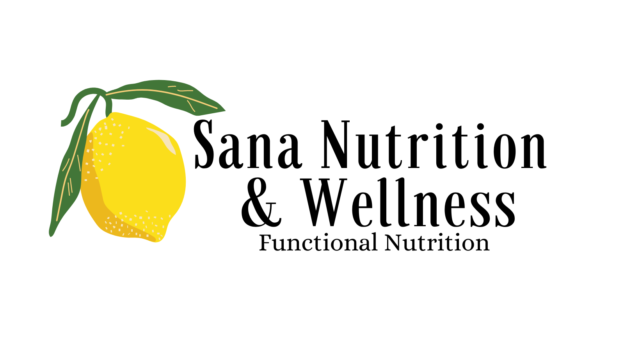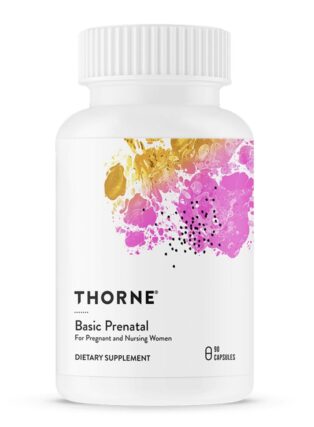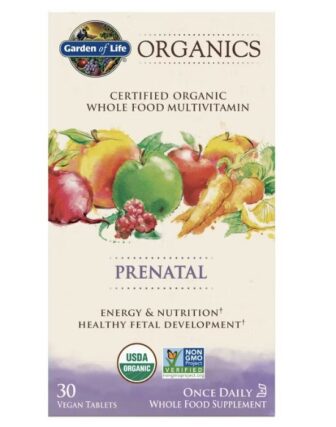The Ultimate Pregnancy Nutrition Guide: What to Eat for a Healthier Baby & a Stronger You
Let’s be real—pregnancy is magical, but it’s also… a lot. Your body is doing the absolute most ( you’re literally growing a human), and good nutrition can make a huge difference in how you feel and how your baby develops.
If you’re wondering, “what should I eat when I’m pregnant?” This is your pregnancy nutrition 101: simple, science-backed, and packed with real-life tips to help you feel good while supporting that growing babe!

Why Nutrition During Pregnancy Really Matters
Food isn’t just fuel right now—it’s foundational. Every bite you take is helping to:
- Build your baby’s brain, bones, and immune system
- Support your energy, digestion, and recovery
- Set the stage for smoother postpartum healing and long-term health—for both of you
But here’s something a lot of people don’t talk about: your baby will get what they need, even if it comes at your expense. If you’re low in certain nutrients, your body will prioritize your baby—leaving your own nutrient stores depleted. That’s why nourishing yourself is just as important as nourishing your little one.
A healthy diet during pregnancy does more than get you through those 9 months. It helps:
- Protect your long-term mental health, by supporting hormone balance and reducing the risk of postpartum depression
- Keep your bones strong, especially as baby draws from your calcium stores
- Support heart health, blood pressure, and circulation—because your cardiovascular system is working overtime
So really, pregnancy nutrition is long-game nutrition. You’re laying a foundation not just for your baby’s health today, but for your health years from now.
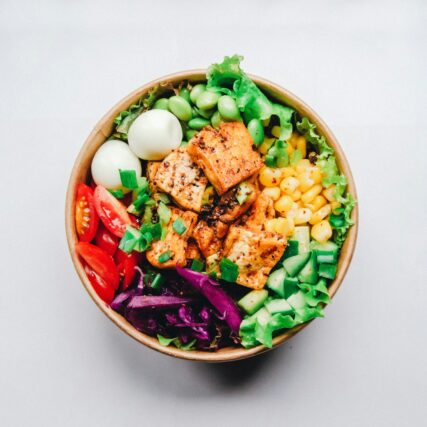
Macronutrients 101: What Your Body Needs (and Why)
Your body needs all three macronutrients—protein, carbs, and fat—just in the right amounts. Here’s what each one does for you and your baby:
🥩 Protein: The Builder
Why it matters: Supports the growth of your baby’s tissues and organs (including the brain) and helps maintain your muscle mass.
Aim for: 75–100 grams per day (to be more percise for your body, you can use this formula 1.1 grams of protein per kilogram of body weight per day)
Food sources: Eggs, lean beef, chicken, Greek yogurt, lentils, cottage cheese, tofu, tempeh, collagen powder. You can use protein powders, just be mindful of the quality and ingredients. I like Ritual protein, it’s clean label certified and has limited added ingredients and supplemental vitamins (you can have too much of certain vitamins with a growing babe)
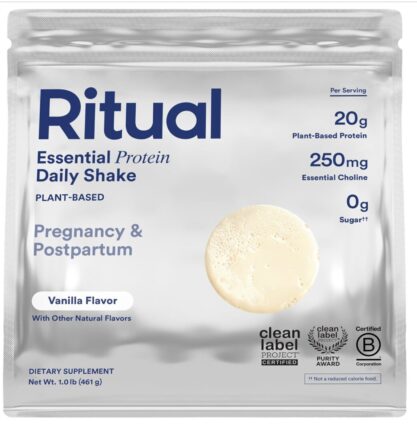
🥑 Healthy Fats: The Brain Booster
Why it matters: Supports brain and eye development in baby, helps you absorb fat-soluble vitamins (A, D, E, and K)
Aim for: Include healthy fats at every meal
Food sources: Avocados, olive oil, nuts, seeds, chia seeds, fatty fish, nut butters, DHA-fortified foods. An Omega 3 Supplement is a good option, make sure it is tested and mercury free, here are some good options.
🍠 Carbs: The Energy Source
Why it matters: Provides fuel for you and your baby—especially important for placenta function and brain development
Choose: Fiber-rich, slow-digesting carbs to support digestion and stabilize blood sugar
Food sources: Quinoa, brown rice, oats, beans, sweet potatoes, berries, whole fruits, sprouted grain breads

Extra Important Micronutrients During Pregnancy (They can get Depleted Easily!)
Pregnancy is a time of sky-high nutrient demand. Even with a balanced diet, many women become deficient in certain nutrients. Here are the most common ones to watch:
🩸 Iron
- Needed for: Blood production and oxygen delivery
- Why it’s depleted: Your blood volume doubles—your iron intake needs to, too
- Food sources: Red meat, spinach, lentils, pumpkin seeds
- Pro tip: Pair with vitamin C (citrus, bell peppers) for better absorption (make sure your prenatal Vitamin contains this, consult your provider!)
🦴 Calcium
- Needed for: Building baby’s bones and teeth
- Why it’s depleted: Baby will take what they need—often from your bones
- Food sources: Dairy, fortified non-dairy milks, leafy greens, chia seeds, almonds
🧠 Omega-3s (DHA)
- Needed for: Brain and eye development, plus supports mom’s mood
- Why it’s depleted: Most diets are low in omega-3s, and demand increases
- Food sources: Salmon, sardines, DHA-fortified eggs, walnuts, flaxseeds
- Tip: Consider a high-quality DHA supplement
🧬 Folate (or folic acid)
- Needed for: Preventing neural tube defects, DNA synthesis
- Why it’s depleted: Early pregnancy needs are high
- Food sources: Leafy greens, avocado, lentils, beans, fortified cereals
💊 Vitamin D
- Needed for: Bone health, immune support, mood regulation
- Why it’s depleted: It’s hard to get enough from food or sunlight
- Food sources: Fatty fish, fortified milks, egg yolks
- Tip: Ask your provider about testing your levels
🧠 Choline
- Needed for: Brain development, memory, mood
- Why it’s depleted: Most prenatals don’t include enough
- Food sources: Egg yolks, salmon, dairy products chicken, Brussels sprouts
🧪 Magnesium
- Needed for: Muscle function, blood sugar control, sleep, digestion
- Why it’s depleted: Stress, pregnancy, and low intake
- Food sources: Dark leafy greens, nuts, seeds, legumes, dark chocolate
Real Food Wins: What to Actually Eat in a Day
You don’t need to follow a rigid plan—just aim for balance. Here’s a sample day to help you get started:
🌞 Sample Daily Menu
Breakfast:
- 2 eggs scrambled with spinach + avocado
- 1 slice of sprouted grain or whole grain toast
- Berries on the side
Snack:
- Greek yogurt with chia seeds and a drizzle of honey
Lunch:
- Turkey and hummus wrap (whole-grain tortilla)
- Carrots and cucumber
- Apple with almond butter
Snack:
- Handful of trail mix + a hard-boiled egg
Dinner:
- Grilled salmon or baked tofu
- Roasted sweet potatoes
- Steamed or roasted broccoli with olive oil
Dessert (optional):
- Dark chocolate or banana with peanut butter
Remember: every day is different. Some days you’ll eat all the colors. Other days? Just toast and cheese sticks. That’s okay. Just aim for progress, not perfection.

Hydration: Don’t Sleep on It
Staying hydrated is a low-effort, high-impact move during pregnancy. It helps with:
- Digestion and regularity
- Amniotic fluid levels
- Headache prevention
- Swelling and circulation
Aim for 10–12 cups of fluid daily (more in the heat or after workouts). Water, herbal teas, bone broth, and smoothies all count. Keeping a stainless steel bottle on hand is helpful to stay Hydrated. Buy one here and Here.
🍼 Let’s Talk Prenatal Supplements
Even if you’re eating well, a prenatal fills in the gaps. Look for one that includes:
- Folate (methylated if possible)
- Iron
- Choline
- DHA
- Iodine
- Vitamin D
Here are a few I recommend: (always check with your provider before supplementing)
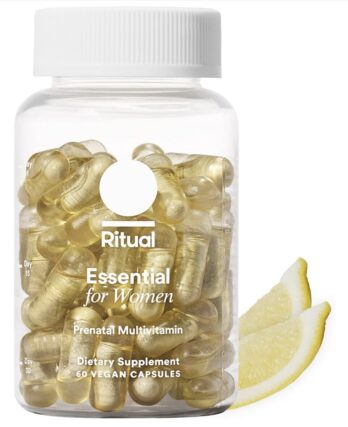
Common Pregnancy Symptoms & How Food Can Help
Pregnancy comes with some curveballs, but nutrition can help ease a few of the big ones:
🤢 Nausea
- Small, frequent meals
- Keep crackers by your bed
- Ginger tea, lemon water, and vitamin B6 (should be in your prenatal). These Ginger lozenges are great to suck on if you have morning sickness.
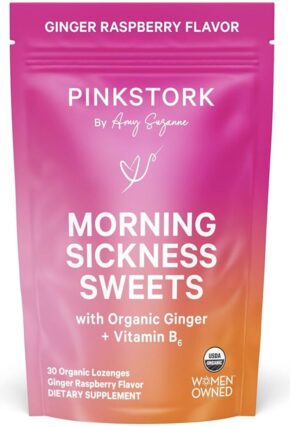
💨 Constipation
- Fiber-rich foods + water
- Add a fiber supplement if needed ( I like this one because it is sweetened with stevia and has no artificial colors)
- Warm lemon water in the morning
- Daily movement (yes, even a walk!)
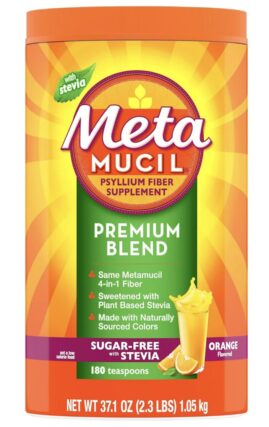
🥱 Fatigue
- Eat regularly to prevent blood sugar crashes
- Focus on iron-rich foods + vitamin C
- Prioritize protein and healthy fats
- Let yourself rest—your body’s working hard
Pregnancy nutrition doesn’t have to be perfect—it just has to be intentional. Focus on real, nourishing foods. Pay attention to how you feel. And give yourself some grace.
Whether you’re enjoying salmon and kale or surviving on dry toast, know this: you’re doing amazing—and every small step adds up.
You’ve got this, mama. 💛
